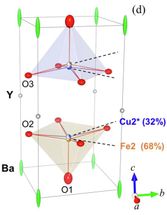Luxembourg discovery advances Parkinson’s disease diagnosis
Scientists uncover paradigm-shifting immune cell markers for early Parkinson's detection with particular relevance to women
In a ground-breaking study, scientists from the Allergy and Clinical Immunology Research Team of the Luxembourg Institute of Health (LIH) Department of Infection and Immunity and the Transversal Translational Medicine of LIH, in collaboration with the Luxembourg Centre for Systems Biomedicine (LCSB) of the University of Luxembourg, have unlocked a crucial key to early Parkinson's disease diagnosis. Their research introduces non-invasive cellular immune biomarkers that could redefine how we identify and address this complex neurodegenerative disease in the near future.
Parkinson's disease (PD), the second-most common neurodegenerative disorder affecting around 10 million individuals globally, is still posing diagnostic challenges. Normally diagnosed through a combination of medical history, symptoms, and a neurological exam, the typical slow onset makes early detection a complex task. Symptoms, such as tremors, slowness of movement, muscular rigidity, and impaired balance, always appear slowly and variably, making an accurate diagnosis of PD, particularly in the early stages, very difficult.
A team of researchers from the Luxembourg Institute of Health (LIH) together with the LCSB have addressed this challenge head-on, providing a novel, easily-accessible, validated, early-window biomarker in the blood that could aid in the diagnosis and impact the prognosis of PD. The work establishes a clear link between disturbances in the peripheral immune system and PD, which appears to be particularly relevant in the early stages of the disease. Their discovery marks a major step forward towards the development of better clinical diagnostic methods: by simply analysing circulating immune cells in a tube of a patient’s blood samples, this innovative technique could provide highly precise answers within around five hours.
"Our work demonstrates, for the first time, a tangible connection between a disrupted peripheral immune system and a chronic brain disease like Parkinson's. This could have far-reaching diagnostic implications, especially for patients without a defined genetic cause for their condition," highlights lead scientist Dr Feng Hefeng from the Department of Infection and Immunity in the LIH.
The researchers built on their previous work about rare familial forms of Parkinson's disease. They discovered that people with a specific gene mutation related to early-onset Parkinson's have a “younger” immune system. Now, they wanted to see, if similar immune system changes could be found in people with the common sporadic form of Parkinson's that isn't caused by a specific genetic alteration. The research team looked at immune cells in people with non-genetic Parkinson's and found that a particular subtype of immune cell, called CD8 T lymphocytes with strong killing functions (CD8 TEMRA cells), was higher in number. These cells were more developed in patients with early-to-mid stage Parkinson's compared to healthy people of the same age. Interestingly, this increase in CD8 TEMRA cells was more striking in women, who are known to be much more susceptible to autoimmune diseases than men.
These CD8 TEMRA cells do not exist in animal models in vivo, so understanding their role in the immune system would not have been possible without analysing samples from participants of the Luxembourg Parkinson's Study of the National Centre of Excellence in Research (NCER-PD). “It’s an exciting time for Parkinson’s disease research, marked by promising new discoveries that can greatly enhance diagnostic capabilities,” explains Dr Clarissa Gomes, programme manager of NCER-PD at LCSB. “NCER-PD developed an exceptional resource to support this and many future discoveries.”
"Our study is a testimonial to the power of translational research and interdisciplinary collaborations with institutions like the Integrated Biobank of Luxembourg. We have laid the groundwork for a potential shift in how we approach Parkinson's disease diagnosis," comments Prof Rejko Krüger, director of Transversal Translational Medicine at the LIH and principal investigator of the Translational Neuroscience group at the LCSB.
“This ground-breaking research not only provides a potential breakthrough in Parkinson's diagnosis but also highlights the importance of our continued investment in translational research for the benefit of patients in Luxembourg and worldwide,” highlights Prof Markus Ollert, director of the LIH Department of Infection and Immunity and co-lead of the study. “Understanding the various components of the human immune system and how they contribute to brain diseases will become key for a better and earlier diagnosis of PD,” he concludes.
Funding and collaborations
Original publication
Christophe M. Capelle, Séverine Ciré, Fanny Hedin, Maxime Hansen, Lukas Pavelka, Kamil Grzyb, Dimitrios Kyriakis, Oliver Hunewald, Maria Konstantinou, Dominique Revets, Vera Tslaf, Tainá M. Marques, Clarissa P. C. Gomes, et al.; "Early-to-mid stage idiopathic Parkinson’s disease shows enhanced cytotoxicity and differentiation in CD8 T-cells in females"; Nature Communications, Volume 14, 2023-11-20
Other news from the department science
Most read news
More news from our other portals
See the theme worlds for related content
Topic world Diagnostics
Diagnostics is at the heart of modern medicine and forms a crucial interface between research and patient care in the biotech and pharmaceutical industries. It not only enables early detection and monitoring of disease, but also plays a central role in individualized medicine by enabling targeted therapies based on an individual's genetic and molecular signature.

Topic world Diagnostics
Diagnostics is at the heart of modern medicine and forms a crucial interface between research and patient care in the biotech and pharmaceutical industries. It not only enables early detection and monitoring of disease, but also plays a central role in individualized medicine by enabling targeted therapies based on an individual's genetic and molecular signature.























































